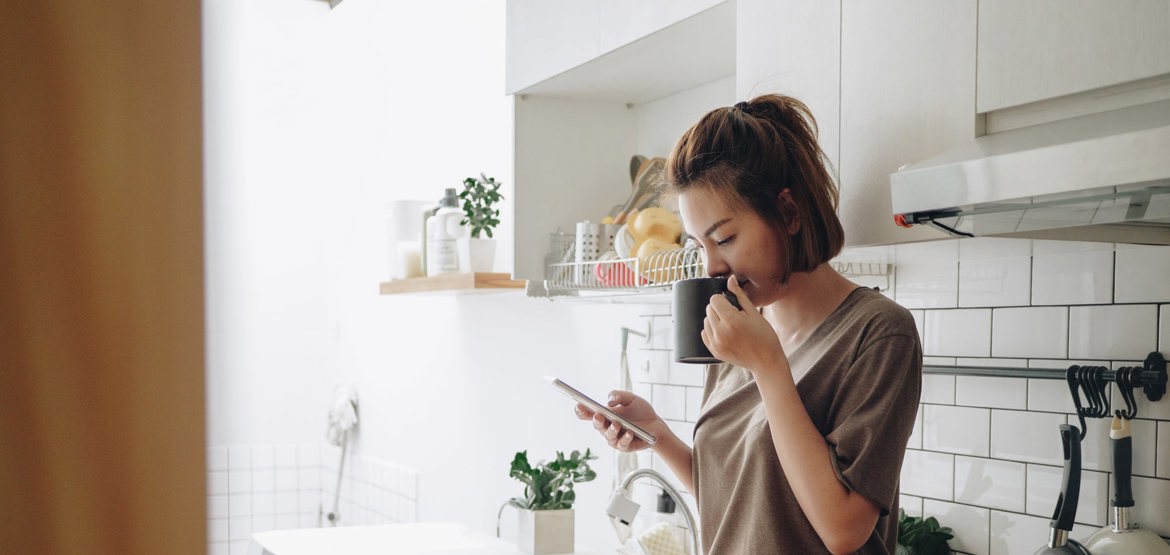How alcohol impacts our behaviour
We take a look at some of the effects drinking can have on our behaviour, from aggression to anxiety, and how to help avoid them.

Date Published
12th September 2023
Topics
Blog
Lifestyle
Mental health
Relationships
How to reduce drinking
If you’ve ever ended up a bit embarrassed or regretful after a night out drinking, you’re probably aware of some of the effects alcohol can have on your behaviour. But what causes us to behave differently after a few too many drinks? And in what ways does our behaviour change?
Alcohol is a depressant which means it slows down activity in your brain. It does this by interfering with the chemicals in the brain).1,2 This same depressant effect is what can give you that relaxed feeling after you’ve had a drink, as well as what interferes with your speech, movements and coordination. ‘Relaxing’ with a glass of wine or bottle of beer is a common reason for drinking. But if you continue to drink, alcohol can start to affect our behaviour in a number of negative ways.
Losing inhibitions
A lot of alcohol’s effects on behaviour are thought to be due to its depressant action on the brain. An important effect is making you more likely to fail to control your inhibitions (what usually stops you from doing something that people judge as negative behaviour).3,4 So, after a few drinks you may act in a way that you wouldn’t normally.1For example, being louder when you’re usually more reserved, or doing or saying something you wouldn’t usually.
Effects on judgement
Alcohol also slows down your thought processes, which can impair your judgement and rational thinking.5 So not only are you more likely to act differently, you may find it harder to work through your true feelings or any possible consequences of your actions.6 This can mean something as seemingly harmless (at the time) as staying out longer than you intended or posting a photo on social media that you come to regret. Drinking too much alcohol can also make you more likely to act in a potentially dangerous way, such as taking risks with your own personal safety.
Alcohol and anger
Another way alcohol can affect our behaviour is through our emotions. While you may feel happy and relaxed when you sip that first drink, these positive feelings can quickly tip into negative emotions ,like anger or aggression.7 You may also find it harder to control these feelings the more you drink in a session.
If you’ve ever Googled the question: ‘Why do I get angry when I drink alcohol?’, there are a number of reasons why alcohol can sometimes trigger aggression. But it generally comes down to the dampening down of the normal processes in your brain that promote self-control and rational thinking.8
There are certain factors that make you more likely to become aggressive when you drink too. If you’re more aggressive in general, alcohol can exaggerate this.9 And if you were already feeling angry before you drank but were keeping it bottled up, alcohol can bring these feelings to the surface.10 That’s why a developing resentment can sometimes turn into an argument after drinking.
Alcohol and anxiety
Alcohol can have an impact on anxiety, too. Drinking alcohol could be contributing to feelings of anxiety, or making them worse. If you suffer from anxiety, it’s important not to be tricked by the temporary feeling of relaxation from drinking alcohol, to avoid being trapped in a vicious circle where you feel anxious as a symptom of the alcohol wearing off, and are then tempted to drink again to relieve the symptoms.
Tips to help you reduce your drinking
The good news is drinking less - and particularly avoiding ‘binge drinking’ in heavy drinking sessions - can keep negative impacts on our behaviour in check. Binge drinking (more than 8 units of alcohol in a single session for males, or more than 6 for females) is linked to unwanted behaviour, though for some people their behaviour changes for the worse after fewer drinks.
And to keep long-term risks to your health low, you should also stay within the Chief Medical Officers’ low risk drinking guidelines of no more than 14 units a week, with several drink-free days, spread over three or more days, and no bingeing.
If you’re going out, there are a few tips you can apply to enjoy yourself and stay safe.
Tips to drink less and enjoy a hassle-free night out
- Alternate every alcoholic drink you have with a non-alcoholic one or water
- Try an alcohol free or low-alcohol drink – there are now more options than ever
- Pace yourself, and make your drink last longer
- Discover some tips on how to deal with peer pressure to help you stick to your plans
- Download the free MyDrinkaware App to help you keep track of your units
- Don't pre-load (with alcohol) before you go out
- Have something to eat before and while you’re drinking
Find out more
Does alcohol make you argue with your partner?
Can I drive the morning after drinking alcohol
References
1) Alcohol and the individual. Encyclopaedia Britannica. https://www.britannica.com/topic/alcohol-consumption/Alcohol-and-society (Accessed 24 May 2022).
2 and 3) Alcohol and mental health. Mental Health Foundation. https://www.mentalhealth.org.uk/a-to-z/a/alcohol-and-mental-health(Accessed 25 May 2022).
4) Heinz, A. J., Beck, A., Meyer-Lindenberg, A., Sterzer, P., & Heinz, A. (2011). Cognitive and neurobiological mechanisms of alcohol-related aggression. Nature reviews. Neuroscience, 12(7), 400–413. https://doi.org/10.1038/nrn3042
5) Alcohol and the individual. Encyclopaedia Britannica. https://www.britannica.com/topic/alcohol-consumption/Alcohol-and-society (Accessed 24 May 2022).
6, 7 and 8) Alcohol and mental health. Mental Health Foundation. https://www.mentalhealth.org.uk/a-to-z/a/alcohol-and-mental-health (Accessed 25 May 2022).
9) Bushman, B. J., Giancola, P. R., Parrott, D. J., & Roth, R. M. (2012). Failure to Consider Future Consequences Increases the Effects of Alcohol on Aggression. Journal of experimental social psychology, 48(2), 591–595. https://doi.org/10.1016/j.jesp.2011.11.013
10) Norström, T., & Pape, H. (2010). Alcohol, suppressed anger and violence. Addiction (Abingdon, England), 105(9), 1580–1586. https://doi.org/10.1111/j.1360-0443.2010.02997.x